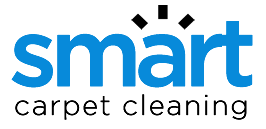How Does Carpet Cleaning Reduce Allergies
Lower Allergy Symptoms with a Clean Carpet
Carpets can harbor a lot of dirt, dust mites, pollen, and other allergens that can impact your health and trigger allergy and asthma symptoms. That’s why cleaning carpets regularly is important for allergy sufferers. Here’s a closer look at how professional carpet cleaning is an effective way to reduce allergies and provides numerous benefits.
Why Carpets Worsen Allergies
Carpet materials are notorious for trapping things that trigger allergic reactions in many people, including:
- Dust mites – These microscopic bugs feed on dead skin cells in carpets. Their droppings also cause allergic reactions and can lead to sneezing and respiratory issues.
- Mould – Damp carpets and high humidity allow mould to grow
- Pollen – This gets tracked inside on shoes and paws and then gets trapped in the carpet.
- Pet dander and pet hair – Pets shed microscopic skin flakes and hair that collect in carpeting.
- Dust particles – Carpets capture bits of dust that contain proteins inducing allergic reactions.
As you walk across a dirty carpet, these irritants and pollutants get kicked back up into the air where you can inhale them. This leads to allergy flare-ups affecting your eyes, nose, and throat.
How Professional Cleaning Helps
Professional carpet cleaners use powerful equipment and effective methods to deep clean and sanitize carpets. The high heat and strong suction ensure the effective removal of hidden dirt and allergens trapped below.
Specifically, professional hot water extraction cleaning does the following:
- Lifts up and removes house dust mites, pollen, dander, and grime from deep down in the carpet fibres.
- Cleans away mold and mildew that has started growing in damp areas.
- Removes the dust and dirt that dust mites feed on. Starved mites die off.
- Extracts sticky soils that have bonded to fibers, reducing what’s available to trigger allergies.
Many professional companies also apply allergen-binding and anti-microbial treatments during the cleaning process, eliminating bacteria and other contaminants.
These solutions leave an invisible residue after drying that helps in the prevention of allergens attaching to carpet fibers again.
When to Have Carpets Cleaned
To minimise allergy triggers, the Carpet Institute Of Australia recommends having carpets professionally deep cleaned every 12 to 18 months. But if you suffer from allergies or asthma, you may need more frequent cleanings.
Watch for signs your carpeted floors need cleaning, including:
- Visible dirt stains and grime
- Musty smells
- Dust comes up when you walk across it
- Allergy or asthma flare-ups, such as increased sneezing, wheezing, or coughing
For high traffic areas, consider professional cleaning every 6 to 12 months.
Regular vacuuming helps, but professional deep cleaning solution is necessary to remove deep-seated allergens.
Finding a Reputable Carpet Cleaner
Not all carpet cleaning services offer the same level of cleaning. When hiring professionals, look for the following:
- Truck-mounted steam cleaning – This provides the best results compared to portable carpet cleaners. The powerful wands and high heat lift more allergens out.
- Fast drying times – You want carpets dry in under 12 hours to prevent mold growth.
- Allergen services – Look for different types of treatments such as green cleaning, anti-microbial treatments, pet odor control, and dust mite treatments.
- CERTIFIED Firm – Cleaners certified through organisations like the IICRC undergo extensive training to properly clean carpets.
Reputable carpet cleaning companies stand behind their work too in case allergy issues return sooner than expected.
Additional Tips for Allergy Management
While carpet cleaning helps a lot, you need a complete plan to reduce allergens:
- Taking these steps, like vacuuming carpets twice weekly using a vacuum cleaner with HEPA filters can reduce allergens.
- Wash bedding weekly in hot water to kill dust mites. Consider allergen covers too.
- Limit fabrics and clutter to give dust fewer places to collect.
- Change HVAC filters monthly.
- Install an air purifier to improve indoor air quality.
Maintaining proper hygiene and cleanliness is crucial.
Following these tips along with regular carpet cleaning from experts gives individuals and their homes the best defense against indoor allergens, leaving your home feeling fresh and promoting health and wellness. These practices help support your immune system by reducing allergen exposure, providing significant allergy relief.
Breathe easier and enjoy a healthier home environment.


